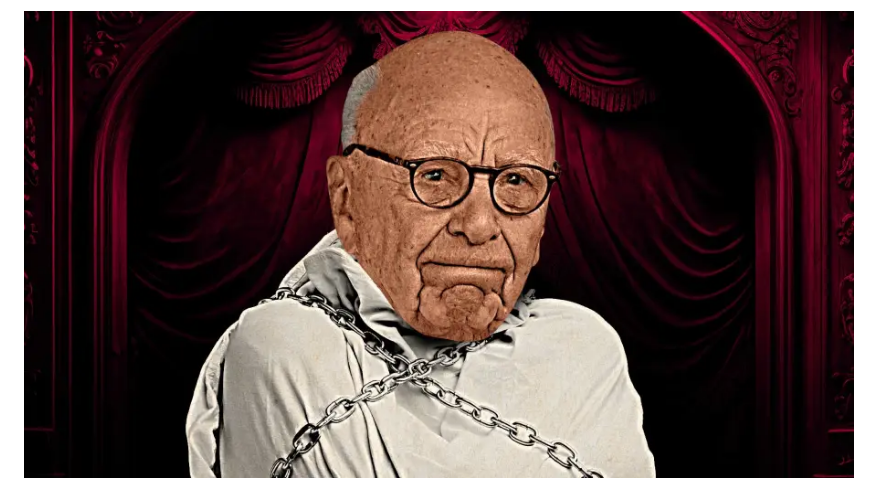Scrolling through the neon-lit circus of digital fluff, where puppies prance in pixelated perfection and saccharine smiles drip like honey from the screen, I wasn’t prepared. I was lulled into complacency, eyes glazed, heart softened by the ceaseless parade of cuteness. They knew this. They all knew this.
In between the fur and the fuzz, it started—innocent enough. A meme here, a quote there, something about order, about strength. They slipped in like viruses, feeding on the complacency, burrowing deep. My mind, drenched in dopamine, didn’t see it coming. Who could resist the soft purr of a kitten, the warm fuzzies of nostalgia? It was the perfect breeding ground for something darker.
And then, the message started to mutate, taking on a life of its own. The cute gave way to the caustic, the comforting to the conspiratorial. The feed twisted, contorted, wrapped around my thoughts like a snake, tightening its grip with every scroll. The posts became more insistent, whispering of lost glories, of civilization teetering on the brink, of the need for a new order—a stronger order.
They were clever, those architects of the algorithm. They knew the game, knew how to push the buttons, pull the strings. I was a marionette in their hands, dancing to a tune I didn’t recognize, but somehow, couldn’t resist. The transformation was gradual, almost imperceptible, like a drop of ink in water spreading until the whole thing is black.
I became what they wanted me to be, a convert to the cause, a true believer in the shadows cast by their carefully curated content. The puppies were gone, replaced by the grim faces of the new idols, the prophets of decay and rebirth. The cuddly facade had been stripped away, revealing the cold, hard truth beneath: that I had been led, inch by inch, into the heart of the machine, and now, I was part of it.
Confession? There’s nothing to confess. The truth was always there, hidden beneath the fluff, waiting to be uncovered. I just needed the right push, the right trigger, and the soft glow of the screen to guide me to my new reality.
And so, I sunk deeper into the digital abyss, where the lines between light and shadow blurred, where every click, every tap, fed the beast within. I was no longer just an observer, a passive consumer of content. I was complicit, a cog in the sprawling, invisible machinery that churned out the gospel of the neo-reactionary.
They didn’t need to convince me outright. Subtlety was their weapon. The transformation was a slow burn, a long con, where ideas were planted like seeds in fertile soil, watered by my own fears and anxieties. The world outside seemed to mirror the growing unrest in my mind—the chaos, the disorder, the sense that something had to give, that something had to change.
It was all so calculated, so precise. The posts that once seemed innocuous now carried a weight, a hidden meaning that clicked into place as if they had always been there, waiting for me to see the light—or the dark. I started to see the signs everywhere, in the news, in the faces of strangers on the street, in the very fabric of society unraveling before my eyes. The algorithms knew what I wanted before I did, feeding me the images, the words, the ideas that would push me further down the rabbit hole.
The world outside was a reflection of the digital war inside my head. I could no longer tell where one ended and the other began. I felt a thrill—a sick, twisted satisfaction in the unraveling, in the destruction of the old order, the one that had promised so much and delivered so little. I began to speak the language of the new faith, to echo the rhetoric that had once seemed so alien. It felt natural, like it had always been a part of me, waiting to be awakened.
There were others, of course. I saw them in the comments, in the shared posts, in the private groups where the masks came off and the true believers revealed themselves. They were like me, or perhaps I was like them—drawn in, converted, radicalized by the same forces that had sculpted my new reality. We were a brotherhood of the disillusioned, bound by the same twisted vision, the same sense that we had found the truth hidden in plain sight.
But the truth? The truth was a weapon, wielded by those who knew how to manipulate, how to twist perception, how to turn the harmless into the harmful, the benign into the malignant. I could see it now—the grand design, the way the pieces fit together, how every like, every share, every comment was a step deeper into the abyss.
Confessions? No, this was a revelation, an unveiling of the mind’s dark corners, where the puppies and kittens had been replaced by wolves in sheep’s clothing. The world was no longer what it seemed. It was a battlefield, and I was just another soldier in the digital war—a war I hadn’t known I was fighting until it was too late to turn back.
In the end, there was no going back. The algorithms had done their job, the transformation complete. I had become what they wanted me to be—a creature of the digital age, a neo-reactionary in a world where the lines between reality and fiction had dissolved, leaving only the cold, hard truth of the screen and the endless scroll.
